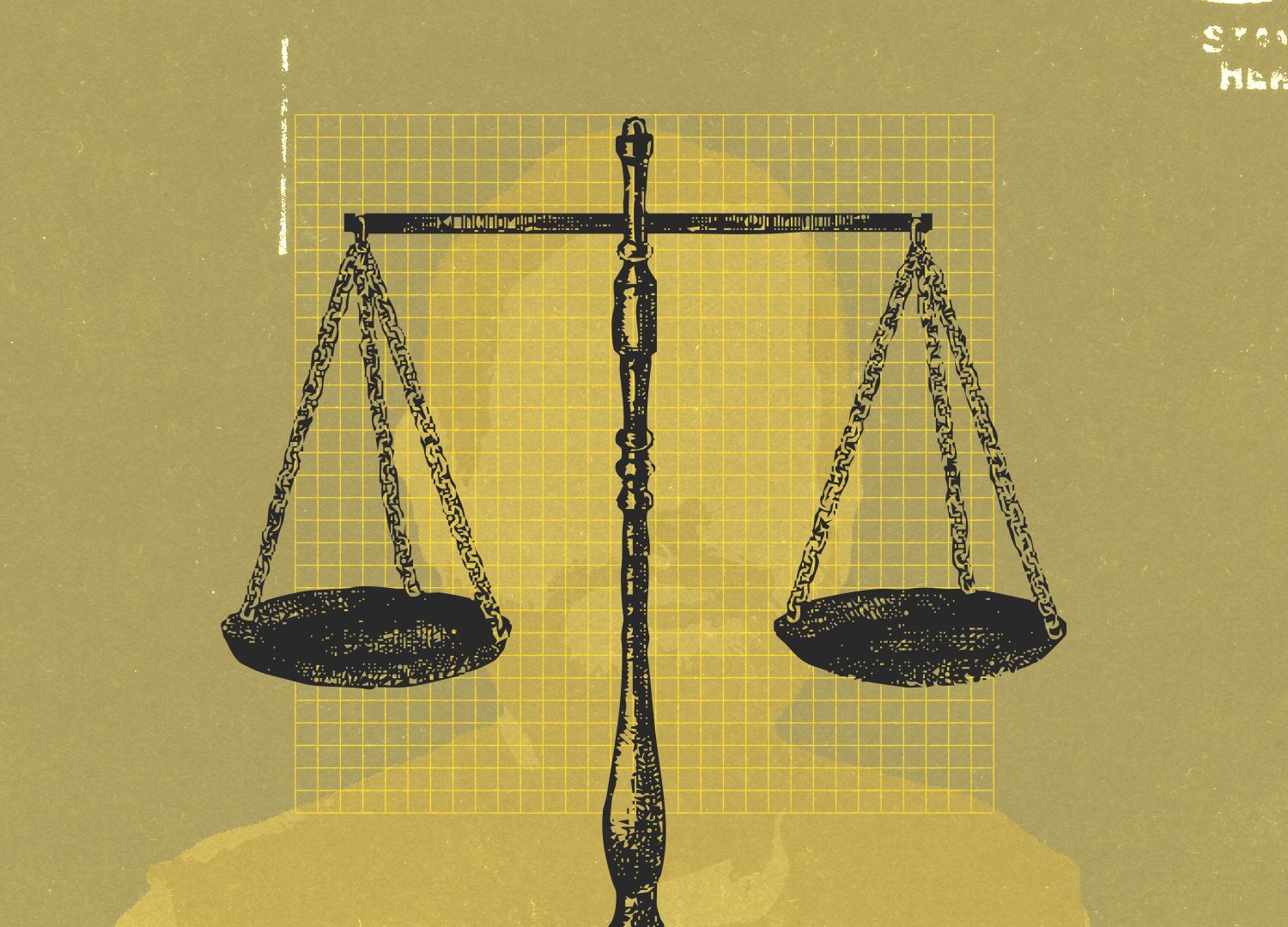The costs to own a car in Canada are rapidly rising, in addition to tariffs

Headline link Advertisement Consumer The costs to own a car in Canada are rapidly rising, in addition to tariffs By Ari Rabinovitch Global News Posted May 2, 2025 3:59 pm 3 min read If you get Global News from Instagram or Facebook - that will be changing. Find out how you can still connect with us. 1:49 Should you speed up your car purchase as Trump imposes metal tariffs? If you're shopping for a new vehicle, you might want to know how the incoming 25 per cent U.S. tariffs on imported steel and aluminum could impact you. Even though the costly tariffs aren’t expected to take effect until March 12, as Anne Gaviola explains, you may want to make a decision faster – Feb 11, 2025 Share this item on Facebook Share this item via WhatsApp Share this item on Twitter Send this page to someone via email Share this item on Facebook Share this item on Twitter Send this page to someone via email Share this item via WhatsApp Share this item on Pocket Share this item via Telegram Share this item on Reddit Share this item on BlueSky Owning a vehicle in Canada is rapidly getting more expensive — in some cases, at a faster rate than inflation — and could rise 25 per cent with tariffs and inflation, a new survey suggests. The Leger survey for Turo Canada, a car-sharing company, says the average cost to own a car or truck has gone up nine per cent since last year, and experts say that will go up even more given the economic outlook.Economists and financial analysts say U.S. President Donald Trump imposing tariffs on virtually all countries and sparking a trade war will ultimately result in higher prices for consumers, including cars and trucks.Although Prime Minister Mark Carney’s new government has pledged to work to blunt as much of the tariff pain as possible, including for the auto sector, it will be some time before prices reflect any improvements, the survey suggests. Story continues below advertisement Until then, Canadians should expect car ownership to become even more of a financial burden as the cost rises even more rapidly. 1:31 Carney slams Trump tariffs, unveils $2B plan to shield Canadian auto sector According to the survey results, the average Canadian spends $5,497 to own a vehicle annually, with Ontario the highest at close to $6,000 and British Columbia the most affordable near $4,500. Plus, one out of three respondents say their expenses exceed $7,000 per year. Get weekly money news Get expert insights, Q&A on markets, housing, inflation, and personal finance information delivered to you every Saturday. By providing your email address, you have read and agree to Global News' Terms and Conditions and Privacy Policy. Those who own vehicles reported that of their monthly net income, an average 14 per cent goes towards car-related expenses. Younger drivers are paying significantly more, with those aged 25 to 44 paying an average $7,029 per year, while those over 65 pay roughly half that at $3,728.Household size and income also play a role as those with higher incomes and/or children typically own more than one vehicle. Story continues below advertisement And it isn’t just about paying for the car itself through financing or leasing,“One of the biggest costs is your fuel. Another thing is maintenance. Everyone has to replace tires at one point, the brakes, oil changes — we don’t necessarily put that all in the bucket of what it’s cost to own our vehicle,” says Kristine D’Arbelles at the Canadian Automobile Association. “You also have your insurance costs and that number varies significantly.” Trending Now NHL player testifies about group chat screenshot at world junior sex assault trial Riding Pierre Poilievre lost in had highest voter turnout in Ontario, data shows Then, if you want to eventually sell or trade in your vehicle, D’Arbelles notes the importance of factoring in a vehicle’s depreciation over time.“Depreciation is if you are expecting to sell your car … knowing that you’re not going to be able to sell it for the same amount that you bought it,” she says.“It can be up to 50 per cent of the cost of owning and operating your vehicle.”Those who already own a vehicle are also expected to face some rising costs in the face of Trump’s tariffs. 2:09 Honda staying in Canada for ‘foreseeable future’ despite U.S. tariffs The overwhelming majority of Canadians still rely on using a vehicle, with more than half of survey respondents saying that without access to one they would need to change jobs. Story continues below advertisement Alternatives certainly exist, such as public transit, taxis and ride-hailing services, as well as walking or biking where possible.However, not everyone has these options available, especially those who live in more remote or suburban areas or where public transportation isn’t satisfactory.Forty-one per cent of respondents said they wish there were better transportation options so they wouldn’t need a car at all. Another Canada Post strike could be coming in May. What we know Mark Carney has a housing plan. How long will it take to implement? Aritzia shifts some supply from China amid U.S. tariffs, CEO says RFK Jr. wants placebo testing for ‘new’ vaccines, some experts say it’s unethical Bidding war for what’s left of Hudson’s Bay Consumer Matters: Canucks fan ticket payout frustration Government extends deadline for short-term rental platforms Halifax food banks and charities see increase in need, but drop in donations Journalistic standards Report an error © 2025 Global News, a division of Corus Entertainment Inc. Sponsored content Report an Error Subscribe here Consumer The costs to own a car in Canada are rapidly rising, in addition to tariffs By Ari Rabinovitch Global News Posted 3 min read If you get Global News from Instagram or Facebook - that will be changing. Find out how you can still connect with us. 1:49 Should you speed up your car purchase as Trump imposes metal tariffs? If you're shopping for a new vehicle, you might want to know how the incoming 25 per cent U.S. tariffs on imported steel and aluminum could impact you. Even though the costly tariffs aren’t expected to take effect until March 12, as Anne Gaviola explains, you may want to make a decision faster – Feb 11, 2025 Share this item on Facebook Share this item via WhatsApp Share this item on Twitter Send this page to someone via email Share this item on Facebook Share this item on Twitter Send this page to someone via email Share this item via WhatsApp Share this item on Pocket Share this item via Telegram Share this item on Reddit Share this item on BlueSky Owning a vehicle in Canada is rapidly getting more expensive — in some cases, at a faster rate than inflation — and could rise 25 per cent with tariffs and inflation, a new survey suggests. The Leger survey for Turo Canada, a car-sharing company, says the average cost to own a car or truck has gone up nine per cent since last year, and experts say that will go up even more given the economic outlook.Economists and financial analysts say U.S. President Donald Trump imposing tariffs on virtually all countries and sparking a trade war will ultimately result in higher prices for consumers, including cars and trucks.Although Prime Minister Mark Carney’s new government has pledged to work to blunt as much of the tariff pain as possible, including for the auto sector, it will be some time before prices reflect any improvements, the survey suggests. Story continues below advertisement Another Canada Post strike could be coming in May. What we know Mark Carney has a housing plan. How long will it take to implement? Aritzia shifts some supply from China amid U.S. tariffs, CEO says RFK Jr. wants placebo testing for ‘new’ vaccines, some experts say it’s unethical Bidding war for what’s left of Hudson’s Bay Consumer Matters: Canucks fan ticket payout frustration Government extends deadline for short-term rental platforms Halifax food banks and charities see increase in need, but drop in donations Until then, Canadians should expect car ownership to become even more of a financial burden as the cost rises even more rapidly. 1:31 Carney slams Trump tariffs, unveils $2B plan to shield Canadian auto sector According to the survey results, the average Canadian spends $5,497 to own a vehicle annually, with Ontario the highest at close to $6,000 and British Columbia the most affordable near $4,500. Plus, one out of three respondents say their expenses exceed $7,000 per year. Get weekly money news Get expert insights, Q&A on markets, housing, inflation, and personal finance information delivered to you every Saturday. By providing your email address, you have read and agree to Global News' Terms and Conditions and Privacy Policy. Those who own vehicles reported that of their monthly net income, an average 14 per cent goes towards car-related expenses. Younger drivers are paying significantly more, with those aged 25 to 44 paying an average $7,029 per year, while those over 65 pay roughly half that at $3,728.Household size and income also play a role as those with higher incomes and/or children typically own more than one vehicle. Story continues below advertisement And it isn’t just about paying for the car itself through financing or leasing,“One of the biggest costs is your fuel. Another thing is maintenance. Everyone has to replace tires at one point, the brakes, oil changes — we don’t necessarily put that all in the bucket of what it’s cost to own our vehicle,” says Kristine D’Arbelles at the Canadian Automobile Association. “You also have your insurance costs and that number varies significantly.” Trending Now NHL player testifies about group chat screenshot at world junior sex assault trial King Charles III to open Parliament at end of May, Carney says Then, if you want to eventually sell or trade in your vehicle, D’Arbelles notes the importance of factoring in a vehicle’s depreciation over time.“Depreciation is if you are expecting to sell your car … knowing that you’re not going to be able to sell it for the same amount that you bought it,” she says.“It can be up to 50 per cent of the cost of owning and operating your vehicle.”Those who already own a vehicle are also expected to face some rising costs in the face of Trump’s tariffs. 2:09 Honda staying in Canada for ‘foreseeable future’ despite U.S. tariffs The overwhelming majority of Canadians still rely on using a vehicle, with more than half of survey respondents saying that without access to one they would need to change jobs. Story continues below advertisement Alternatives certainly exist, such as public transit, taxis and ride-hailing services, as well as walking or biking where possible.However, not everyone has these options available, especially those who live in more remote or suburban areas or where public transportation isn’t satisfactory.Forty-one per cent of respondents said they wish there were better transportation options so they wouldn’t need a car at all. Journalistic standards Report an error Sponsored content Report an Error Subscribe here Consumer The costs to own a car in Canada are rapidly rising, in addition to tariffs By Ari Rabinovitch Global News Posted 3 min read If you get Global News from Instagram or Facebook - that will be changing. Find out how you can still connect with us. 1:49 Should you speed up your car purchase as Trump imposes metal tariffs? If you're shopping for a new vehicle, you might want to know how the incoming 25 per cent U.S. tariffs on imported steel and aluminum could impact you. Even though the costly tariffs aren’t expected to take effect until March 12, as Anne Gaviola explains, you may want to make a decision faster – Feb 11, 2025 Share this item on Facebook Share this item via WhatsApp Share this item on Twitter Send this page to someone via email Share this item on Facebook Share this item on Twitter Send this page to someone via email Share this item via WhatsApp Share this item on Pocket Share this item via Telegram Share this item on Reddit Share this item on BlueSky Owning a vehicle in Canada is rapidly getting more expensive — in some cases, at a faster rate than inflation — and could rise 25 per cent with tariffs and inflation, a new survey suggests. The Leger survey for Turo Canada, a car-sharing company, says the average cost to own a car or truck has gone up nine per cent since last year, and experts say that will go up even more given the economic outlook.Economists and financial analysts say U.S. President Donald Trump imposing tariffs on virtually all countries and sparking a trade war will ultimately result in higher prices for consumers, including cars and trucks.Although Prime Minister Mark Carney’s new government has pledged to work to blunt as much of the tariff pain as possible, including for the auto sector, it will be some time before prices reflect any improvements, the survey suggests. Story continues below advertisement Until then, Canadians should expect car ownership to become even more of a financial burden as the cost rises even more rapidly. 1:31 Carney slams Trump tariffs, unveils $2B plan to shield Canadian auto sector According to the survey results, the average Canadian spends $5,497 to own a vehicle annually, with Ontario the highest at close to $6,000 and British Columbia the most affordable near $4,500. Plus, one out of three respondents say their expenses exceed $7,000 per year. Get weekly money news Get expert insights, Q&A on markets, housing, inflation, and personal finance information delivered to you every Saturday. By providing your email address, you have read and agree to Global News' Terms and Conditions and Privacy Policy. Those who own vehicles reported that of their monthly net income, an average 14 per cent goes towards car-related expenses. Younger drivers are paying significantly more, with those aged 25 to 44 paying an average $7,029 per year, while those over 65 pay roughly half that at $3,728.Household size and income also play a role as those with higher incomes and/or children typically own more than one vehicle. Story continues below advertisement And it isn’t just about paying for the car itself through financing or leasing,“One of the biggest costs is your fuel. Another thing is maintenance. Everyone has to replace tires at one point, the brakes, oil changes — we don’t necessarily put that all in the bucket of what it’s cost to own our vehicle,” says Kristine D’Arbelles at the Canadian Automobile Association. “You also have your insurance costs and that number varies significantly.” Trending Now Riding Pierre Poilievre lost in had highest voter turnout in Ontario, data shows NHL player testifies about group chat screenshot at world junior sex assault trial Then, if you want to eventually sell or trade in your vehicle, D’Arbelles notes the importance of factoring in a vehicle’s depreciation over time.“Depreciation is if you are expecting to sell your car … knowing that you’re not going to be able to sell it for the same amount that you bought it,” she says.“It can be up to 50 per cent of the cost of owning and operating your vehicle.”Those who already own a vehicle are also expected to face some rising costs in the face of Trump’s tariffs. 2:09 Honda staying in Canada for ‘foreseeable future’ despite U.S. tariffs The overwhelming majority of Canadians still rely on using a vehicle, with more than half of survey respondents saying that without access to one they would need to change jobs. Story continues below advertisement Alternatives certainly exist, such as public transit, taxis and ride-hailing services, as well as walking or biking where possible.However, not everyone has these options available, especially those who live in more remote or suburban areas or where public transportation isn’t satisfactory.Forty-one per cent of respondents said they wish there were better transportation options so they wouldn’t need a car at all. Journalistic standards Report an error Sponsored content Report an Error Subscribe here Consumer The costs to own a car in Canada are rapidly rising, in addition to tariffs By Ari Rabinovitch Global News Posted 3 min read If you get Global News from Instagram or Facebook - that will be changing. Find out how you can still connect with us. 1:49 Should you speed up your car purchase as Trump imposes metal tariffs? If you're shopping for a new vehicle, you might want to know how the incoming 25 per cent U.S. tariffs on imported steel and aluminum could impact you. Even though the costly tariffs aren’t expected to take effect until March 12, as Anne Gaviola explains, you may want to make a decision faster – Feb 11, 2025 Share this item on Facebook Share this item via WhatsApp Share this item on Twitter Send this page to someone via email Share this item on Facebook Share this item on Twitter Send this page to someone via email Share this item via WhatsApp Share this item on Pocket Share this item via Telegram Share this item on Reddit Share this item on BlueSky Owning a vehicle in Canada is rapidly getting more expensive — in some cases, at a faster rate than inflation — and could rise 25 per cent with tariffs and inflation, a new survey suggests. The Leger survey for Turo Canada, a car-sharing company, says the average cost to own a car or truck has gone up nine per cent since last year, and experts say that will go up even more given the economic outlook.Economists and financial analysts say U.S. President Donald Trump imposing tariffs on virtually all countries and sparking a trade war will ultimately result in higher prices for consumers, including cars and trucks.Although Prime Minister Mark Carney’s new government has pledged to work to blunt as much of the tariff pain as possible, including for the auto sector, it will be some time before prices reflect any improvements, the survey suggests. Story continues below advertisement Until then, Canadians should expect car ownership to become even more of a financial burden as the cost rises even more rapidly. 1:31 Carney slams Trump tariffs, unveils $2B plan to shield Canadian auto sector According to the survey results, the average Canadian spends $5,497 to own a vehicle annually, with Ontario the highest at close to $6,000 and British Columbia the most affordable near $4,500. Plus, one out of three respondents say their expenses exceed $7,000 per year. Get weekly money news Get expert insights, Q&A on markets, housing, inflation, and personal finance information delivered to you every Saturday. By providing your email address, you have read and agree to Global News' Terms and Conditions and Privacy Policy. Those who own vehicles reported that of their monthly net income, an average 14 per cent goes towards car-related expenses. Younger drivers are paying significantly more, with those aged 25 to 44 paying an average $7,029 per year, while those over 65 pay roughly half that at $3,728.Household size and income also play a role as those with higher incomes and/or children typically own more than one vehicle. Story continues below advertisement And it isn’t just about paying for the car itself through financing or leasing,“One of the biggest costs is your fuel. Another thing is maintenance. Everyone has to replace tires at one point, the brakes, oil changes — we don’t necessarily put that all in the bucket of what it’s cost to own our vehicle,” says Kristine D’Arbelles at the Canadian Automobile Association. “You also have your insurance costs and that number varies significantly.” Trending Now Another Canada Post strike could be coming in May. What we know King Charles III to open Parliament at end of May, Carney says Then, if you want to eventually sell or trade in your vehicle, D’Arbelles notes the importance of factoring in a vehicle’s depreciation over time.“Depreciation is if you are expecting to sell your car … knowing that you’re not going to be able to sell it for the same amount that you bought it,” she says.“It can be up to 50 per cent of the cost of owning and operating your vehicle.”Those who already own a vehicle are also expected to face some rising costs in the face of Trump’s tariffs. 2:09 Honda staying in Canada for ‘foreseeable future’ despite U.S. tariffs The overwhelming majority of Canadians still rely on using a vehicle, with more than half of survey respondents saying that without access to one they would need to change jobs. Story continues below advertisement Alternatives certainly exist, such as public transit, taxis and ride-hailing services, as well as walking or biking where possible.However, not everyone has these options available, especially those who live in more remote or suburban areas or where public transportation isn’t satisfactory.Forty-one per cent of respondents said they wish there were better transportation options so they wouldn’t need a car at all. Journalistic standards Report an error Sponsored content Report an Error Subscribe here Consumer The costs to own a car in Canada are rapidly rising, in addition to tariffs By Ari Rabinovitch Global News Posted 3 min read If you get Global News from Instagram or Facebook - that will be changing. Find out how you can still connect with us. 1:49 Should you speed up your car purchase as Trump imposes metal tariffs? If you're shopping for a new vehicle, you might want to know how the incoming 25 per cent U.S. tariffs on imported steel and aluminum could impact you. Even though the costly tariffs aren’t expected to take effect until March 12, as Anne Gaviola explains, you may want to make a decision faster – Feb 11, 2025 Share this item on Facebook Share this item via WhatsApp Share this item on Twitter Send this page to someone via email Share this item on Facebook Share this item on Twitter Send this page to someone via email Share this item via WhatsApp Share this item on Pocket Share this item via Telegram Share this item on Reddit Share this item on BlueSky Owning a vehicle in Canada is rapidly getting more expensive — in some cases, at a faster rate than inflation — and could rise 25 per cent with tariffs and inflation, a new survey suggests. The Leger survey for Turo Canada, a car-sharing company, says the average cost to own a car or truck has gone up nine per cent since last year, and experts say that will go up even more given the economic outlook.Economists and financial analysts say U.S. President Donald Trump imposing tariffs on virtually all countries and sparking a trade war will ultimately result in higher prices for consumers, including cars and trucks.Although Prime Minister Mark Carney’s new government has pledged to work to blunt as much of the tariff pain as possible, including for the auto sector, it will be some time before prices reflect any improvements, the survey suggests. Story continues below advertisement Until then, Canadians should expect car ownership to become even more of a financial burden as the cost rises even more rapidly. 1:31 Carney slams Trump tariffs, unveils $2B plan to shield Canadian auto sector According to the survey results, the average Canadian spends $5,497 to own a vehicle annually, with Ontario the highest at close to $6,000 and British Columbia the most affordable near $4,500. Plus, one out of three respondents say their expenses exceed $7,000 per year. Get weekly money news Get expert insights, Q&A on markets, housing, inflation, and personal finance information delivered to you every Saturday. By providing your email address, you have read and agree to Global News' Terms and Conditions and Privacy Policy. Those who own vehicles reported that of their monthly net income, an average 14 per cent goes towards car-related expenses. Younger drivers are paying significantly more, with those aged 25 to 44 paying an average $7,029 per year, while those over 65 pay roughly half that at $3,728.Household size and income also play a role as those with higher incomes and/or children typically own more than one vehicle. Story continues below advertisement And it isn’t just about paying for the car itself through financing or leasing,“One of the biggest costs is your fuel. Another thing is maintenance. Everyone has to replace tires at one point, the brakes, oil changes — we don’t necessarily put that all in the bucket of what it’s cost to own our vehicle,” says Kristine D’Arbelles at the Canadian Automobile Association. “You also have your insurance costs and that number varies significantly.” Trending Now King Charles III to open Parliament at end of May, Carney says Another Canada Post strike could be coming in May. What we know Then, if you want to eventually sell or trade in your vehicle, D’Arbelles notes the importance of factoring in a vehicle’s depreciation over time.“Depreciation is if you are expecting to sell your car … knowing that you’re not going to be able to sell it for the same amount that you bought it,” she says.“It can be up to 50 per cent of the cost of owning and operating your vehicle.”Those who already own a vehicle are also expected to face some rising costs in the face of Trump’s tariffs. 2:09 Honda staying in Canada for ‘foreseeable future’ despite U.S. tariffs The overwhelming majority of Canadians still rely on using a vehicle, with more than half of survey respondents saying that without access to one they would need to change jobs. Story continues below advertisement Alternatives certainly exist, such as public transit, taxis and ride-hailing services, as well as walking or biking where possible.However, not everyone has these options available, especially those who live in more remote or suburban areas or where public transportation isn’t satisfactory.Forty-one per cent of respondents said they wish there were better transportation options so they wouldn’t need a car at all. Journalistic standards Report an error Sponsored content Report an Error Subscribe here Consumer The costs to own a car in Canada are rapidly rising, in addition to tariffs By Ari Rabinovitch Global News Posted 3 min read If you get Global News from Instagram or Facebook - that will be changing. Find out how you can still connect with us. 1:49 Should you speed up your car purchase as Trump imposes metal tariffs? If you're shopping for a new vehicle, you might want to know how the incoming 25 per cent U.S. tariffs on imported steel and aluminum could impact you. Even though the costly tariffs aren’t expected to take effect until March 12, as Anne Gaviola explains, you may want to make a decision faster – Feb 11, 2025 Share this item on Facebook Share this item via WhatsApp Share this item on Twitter Send this page to someone via email Share this item on Facebook Share this item on Twitter Send this page to someone via email Share this item via WhatsApp Share this item on Pocket Share this item via Telegram Share this item on Reddit Share this item on BlueSky Owning a vehicle in Canada is rapidly getting more expensive — in some cases, at a faster rate than inflation — and could rise 25 per cent with tariffs and inflation, a new survey suggests. The Leger survey for Turo Canada, a car-sharing company, says the average cost to own a car or truck has gone up nine per cent since last year, and experts say that will go up even more given the economic outlook.Economists and financial analysts say U.S. President Donald Trump imposing tariffs on virtually all countries and sparking a trade war will ultimately result in higher prices for consumers, including cars and trucks.Although Prime Minister Mark Carney’s new government has pledged to work to blunt as much of the tariff pain as possible, including for the auto sector, it will be some time before prices reflect any improvements, the survey suggests. Story continues below advertisement Until then, Canadians should expect car ownership to become even more of a financial burden as the cost rises even more rapidly. 1:31 Carney slams Trump tariffs, unveils $2B plan to shield Canadian auto sector According to the survey results, the average Canadian spends $5,497 to own a vehicle annually, with Ontario the highest at close to $6,000 and British Columbia the most affordable near $4,500. Plus, one out of three respondents say their expenses exceed $7,000 per year. Get weekly money news Get expert insights, Q&A on markets, housing, inflation, and personal finance information delivered to you every Saturday. By providing your email address, you have read and agree to Global News' Terms and Conditions and Privacy Policy. Those who own vehicles reported that of their monthly net income, an average 14 per cent goes towards car-related expenses. Younger drivers are paying significantly more, with those aged 25 to 44 paying an average $7,029 per year, while those over 65 pay roughly half that at $3,728.Household size and income also play a role as those with higher incomes and/or children typically own more than one vehicle. Story continues below advertisement And it isn’t just about paying for the car itself through financing or leasing,“One of the biggest costs is your fuel. Another thing is maintenance. Everyone has to replace tires at one point, the brakes, oil changes — we don’t necessarily put that all in the bucket of what it’s cost to own our vehicle,” says Kristine D’Arbelles at the Canadian Automobile Association. “You also have your insurance costs and that number varies significantly.” Trending Now Riding Pierre Poilievre lost in had highest voter turnout in Ontario, data shows Conservative MP will resign Alberta riding so Poilievre can run again Then, if you want to eventually sell or trade in your vehicle, D’Arbelles notes the importance of factoring in a vehicle’s depreciation over time.“Depreciation is if you are expecting to sell your car … knowing that you’re not going to be able to sell it for the same amount that you bought it,” she says.“It can be up to 50 per cent of the cost of owning and operating your vehicle.”Those who already own a vehicle are also expected to face some rising costs in the face of Trump’s tariffs. 2:09 Honda staying in Canada for ‘foreseeable future’ despite U.S. tariffs The overwhelming majority of Canadians still rely on using a vehicle, with more than half of survey respondents saying that without access to one they would need to change jobs. Story continues below advertisement Alternatives certainly exist, such as public transit, taxis and ride-hailing services, as well as walking or biking where possible.However, not everyone has these options available, especially those who live in more remote or suburban areas or where public transportation isn’t satisfactory.Forty-one per cent of respondents said they wish there were better transportation options so they wouldn’t need a car at all. Journalistic standards Report an error Sponsored content Report an Error Subscribe here Consumer The costs to own a car in Canada are rapidly rising, in addition to tariffs By Ari Rabinovitch Global News Posted 3 min read If you get Global News from Instagram or Facebook - that will be changing. Find out how you can still connect with us. 1:49 Should you speed up your car purchase as Trump imposes metal tariffs? If you're shopping for a new vehicle, you might want to know how the incoming 25 per cent U.S. tariffs on imported steel and aluminum could impact you. Even though the costly tariffs aren’t expected to take effect until March 12, as Anne Gaviola explains, you may want to make a decision faster – Feb 11, 2025 Share this item on Facebook Share this item via WhatsApp Share this item on Twitter Send this page to someone via email Share this item on Facebook Share this item on Twitter Send this page to someone via email Share this item via WhatsApp Share this item on Pocket Share this item via Telegram Share this item on Reddit Share this item on BlueSky Owning a vehicle in Canada is rapidly getting more expensive — in some cases, at a faster rate than inflation — and could rise 25 per cent with tariffs and inflation, a new survey suggests. The Leger survey for Turo Canada, a car-sharing company, says the average cost to own a car or truck has gone up nine per cent since last year, and experts say that will go up even more given the economic outlook.Economists and financial analysts say U.S. President Donald Trump imposing tariffs on virtually all countries and sparking a trade war will ultimately result in higher prices for consumers, including cars and trucks.Although Prime Minister Mark Carney’s new government has pledged to work to blunt as much of the tariff pain as possible, including for the auto sector, it will be some time before prices reflect any improvements, the survey suggests. Story continues below advertisement Until then, Canadians should expect car ownership to become even more of a financial burden as the cost rises even more rapidly. 1:31 Carney slams Trump tariffs, unveils $2B plan to shield Canadian auto sector According to the survey results, the average Canadian spends $5,497 to own a vehicle annually, with Ontario the highest at close to $6,000 and British Columbia the most affordable near $4,500. Plus, one out of three respondents say their expenses exceed $7,000 per year. Get weekly money news Get expert insights, Q&A on markets, housing, inflation, and personal finance information delivered to you every Saturday. By providing your email address, you have read and agree to Global News' Terms and Conditions and Privacy Policy. Those who own vehicles reported that of their monthly net income, an average 14 per cent goes towards car-related expenses. Younger drivers are paying significantly more, with those aged 25 to 44 paying an average $7,029 per year, while those over 65 pay roughly half that at $3,728.Household size and income also play a role as those with higher incomes and/or children typically own more than one vehicle. Story continues below advertisement And it isn’t just about paying for the car itself through financing or leasing,“One of the biggest costs is your fuel. Another thing is maintenance. Everyone has to replace tires at one point, the brakes, oil changes — we don’t necessarily put that all in the bucket of what it’s cost to own our vehicle,” says Kristine D’Arbelles at the Canadian Automobile Association. “You also have your insurance costs and that number varies significantly.” Trending Now Riding Pierre Poilievre lost in had highest voter turnout in Ontario, data shows Radio station faces backlash after listeners duped by AI host for 6 months Then, if you want to eventually sell or trade in your vehicle, D’Arbelles notes the importance of factoring in a vehicle’s depreciation over time.“Depreciation is if you are expecting to sell your car … knowing that you’re not going to be able to sell it for the same amount that you bought it,” she says.“It can be up to 50 per cent of the cost of owning and operating your vehicle.”Those who already own a vehicle are also expected to face some rising costs in the face of Trump’s tariffs. 2:09 Honda staying in Canada for ‘foreseeable future’ despite U.S. tariffs The overwhelming majority of Canadians still rely on using a vehicle, with more than half of survey respondents saying that without access to one they would need to change jobs. Story continues below advertisement Alternatives certainly exist, such as public transit, taxis and ride-hailing services, as well as walking or biking where possible.However, not everyone has these options available, especially those who live in more remote or suburban areas or where public transportation isn’t satisfactory.Forty-one per cent of respondents said they wish there were better transportation options so they wouldn’t need a car at all. Journalistic standards Report an error Sponsored content Report an Error Subscribe here Consumer The costs to own a car in Canada are rapidly rising, in addition to tariffs By Ari Rabinovitch Global News Posted 3 min read If you get Global News from Instagram or Facebook - that will be changing. Find out how you can still connect with us. 1:49 Should you speed up your car purchase as Trump imposes metal tariffs? If you're shopping for a new vehicle, you might want to know how the incoming 25 per cent U.S. tariffs on imported steel and aluminum could impact you. Even though the costly tariffs aren’t expected to take effect until March 12, as Anne Gaviola explains, you may want to make a decision faster – Feb 11, 2025 Share this item on Facebook Share this item via WhatsApp Share this item on Twitter Send this page to someone via email Share this item on Facebook Share this item on Twitter Send this page to someone via email Share this item via WhatsApp Share this item on Pocket Share this item via Telegram Share this item on Reddit Share this item on BlueSky Owning a vehicle in Canada is rapidly getting more expensive — in some cases, at a faster rate than inflation — and could rise 25 per cent with tariffs and inflation, a new survey suggests. The Leger survey for Turo Canada, a car-sharing company, says the average cost to own a car or truck has gone up nine per cent since last year, and experts say that will go up even more given the economic outlook.Economists and financial analysts say U.S. President Donald Trump imposing tariffs on virtually all countries and sparking a trade war will ultimately result in higher prices for consumers, including cars and trucks.Although Prime Minister Mark Carney’s new government has pledged to work to blunt as much of the tariff pain as possible, including for the auto sector, it will be some time before prices reflect any improvements, the survey suggests. Story continues below advertisement Until then, Canadians should expect car ownership to become even more of a financial burden as the cost rises even more rapidly. 1:31 Carney slams Trump tariffs, unveils $2B plan to shield Canadian auto sector According to the survey results, the average Canadian spends $5,497 to own a vehicle annually, with Ontario the highest at close to $6,000 and British Columbia the most affordable near $4,500. Plus, one out of three respondents say their expenses exceed $7,000 per year. Get weekly money news Get expert insights, Q&A on markets, housing, inflation, and personal finance information delivered to you every Saturday. By providing your email address, you have read and agree to Global News' Terms and Conditions and Privacy Policy. Those who own vehicles reported that of their monthly net income, an average 14 per cent goes towards car-related expenses. Younger drivers are paying significantly more, with those aged 25 to 44 paying an average $7,029 per year, while those over 65 pay roughly half that at $3,728.Household size and income also play a role as those with higher incomes and/or children typically own more than one vehicle. Story continues below advertisement And it isn’t just about paying for the car itself through financing or leasing,“One of the biggest costs is your fuel. Another thing is maintenance. Everyone has to replace tires at one point, the brakes, oil changes — we don’t necessarily put that all in the bucket of what it’s cost to own our vehicle,” says Kristine D’Arbelles at the Canadian Automobile Association. “You also have your insurance costs and that number varies significantly.” Trending Now Riding Pierre Poilievre lost in had highest voter turnout in Ontario, data shows Conservative MP will resign Alberta riding so Poilievre can run again Then, if you want to eventually sell or trade in your vehicle, D’Arbelles notes the importance of factoring in a vehicle’s depreciation over time.“Depreciation is if you are expecting to sell your car … knowing that you’re not going to be able to sell it for the same amount that you bought it,” she says.“It can be up to 50 per cent of the cost of owning and operating your vehicle.”Those who already own a vehicle are also expected to face some rising costs in the face of Trump’s tariffs. 2:09 Honda staying in Canada for ‘foreseeable future’ despite U.S. tariffs The overwhelming majority of Canadians still rely on using a vehicle, with more than half of survey respondents saying that without access to one they would need to change jobs. Story continues below advertisement Alternatives certainly exist, such as public transit, taxis and ride-hailing services, as well as walking or biking where possible.However, not everyone has these options available, especially those who live in more remote or suburban areas or where public transportation isn’t satisfactory.Forty-one per cent of respondents said they wish there were better transportation options so they wouldn’t need a car at all. Journalistic standards Report an error Sponsored content Report an Error Subscribe here Consumer The costs to own a car in Canada are rapidly rising, in addition to tariffs By Ari Rabinovitch Global News Posted 3 min read If you get Global News from Instagram or Facebook - that will be changing. Find out how you can still connect with us. 1:49 Should you speed up your car purchase as Trump imposes metal tariffs? If you're shopping for a new vehicle, you might want to know how the incoming 25 per cent U.S. tariffs on imported steel and aluminum could impact you. Even though the costly tariffs aren’t expected to take effect until March 12, as Anne Gaviola explains, you may want to make a decision faster – Feb 11, 2025 Share this item on Facebook Share this item via WhatsApp Share this item on Twitter Send this page to someone via email Share this item on Facebook Share this item on Twitter Send this page to someone via email Share this item via WhatsApp Share this item on Pocket Share this item via Telegram Share this item on Reddit Share this item on BlueSky Owning a vehicle in Canada is rapidly getting more expensive — in some cases, at a faster rate than inflation — and could rise 25 per cent with tariffs and inflation, a new survey suggests. The Leger survey for Turo Canada, a car-sharing company, says the average cost to own a car or truck has gone up nine per cent since last year, and experts say that will go up even more given the economic outlook.Economists and financial analysts say U.S. President Donald Trump imposing tariffs on virtually all countries and sparking a trade war will ultimately result in higher prices for consumers, including cars and trucks.Although Prime Minister Mark Carney’s new government has pledged to work to blunt as much of the tariff pain as possible, including for the auto sector, it will be some time before prices reflect any improvements, the survey suggests. Story continues below advertisement Until then, Canadians should expect car ownership to become even more of a financial burden as the cost rises even more rapidly. 1:31 Carney slams Trump tariffs, unveils $2B plan to shield Canadian auto sector According to the survey results, the average Canadian spends $5,497 to own a vehicle annually, with Ontario the highest at close to $6,000 and British Columbia the most affordable near $4,500. Plus, one out of three respondents say their expenses exceed $7,000 per year. Get weekly money news Get expert insights, Q&A on markets, housing, inflation, and personal finance information delivered to you every Saturday. By providing your email address, you have read and agree to Global News' Terms and Conditions and Privacy Policy. Those who own vehicles reported that of their monthly net income, an average 14 per cent goes towards car-related expenses. Younger drivers are paying significantly more, with those aged 25 to 44 paying an average $7,029 per year, while those over 65 pay roughly half that at $3,728.Household size and income also play a role as those with higher incomes and/or children typically own more than one vehicle. Story continues below advertisement And it isn’t just about paying for the car itself through financing or leasing,“One of the biggest costs is your fuel. Another thing is maintenance. Everyone has to replace tires at one point, the brakes, oil changes — we don’t necessarily put that all in the bucket of what it’s cost to own our vehicle,” says Kristine D’Arbelles at the Canadian Automobile Association. “You also have your insurance costs and that number varies significantly.” Trending Now NHL player testifies about group chat screenshot at world junior sex assault trial Conservative MP will resign Alberta riding so Poilievre can run again Then, if you want to eventually sell or trade in your vehicle, D’Arbelles notes the importance of factoring in a vehicle’s depreciation over time.“Depreciation is if you are expecting to sell your car … knowing that you’re not going to be able to sell it for the same amount that you bought it,” she says.“It can be up to 50 per cent of the cost of owning and operating your vehicle.”Those who already own a vehicle are also expected to face some rising costs in the face of Trump’s tariffs. 2:09 Honda staying in Canada for ‘foreseeable future’ despite U.S. tariffs The overwhelming majority of Canadians still rely on using a vehicle, with more than half of survey respondents saying that without access to one they would need to change jobs. Story continues below advertisement Alternatives certainly exist, such as public transit, taxis and ride-hailing services, as well as walking or biking where possible.However, not everyone has these options available, especially those who live in more remote or suburban areas or where public transportation isn’t satisfactory.Forty-one per cent of respondents said they wish there were better transportation options so they wouldn’t need a car at all. Journalistic standards Report an error Sponsored content Report an Error Subscribe here Consumer The costs to own a car in Canada are rapidly rising, in addition to tariffs By Ari Rabinovitch Global News Posted 3 min read If you get Global News from Instagram or Facebook - that will be changing. Find out how you can still connect with us. 1:49 Should you speed up your car purchase as Trump imposes metal tariffs? If you're shopping for a new vehicle, you might want to know how the incoming 25 per cent U.S. tariffs on imported steel and aluminum could impact you. Even though the costly tariffs aren’t expected to take effect until March 12, as Anne Gaviola explains, you may want to make a decision faster – Feb 11, 2025 Share this item on Facebook Share this item via WhatsApp Share this item on Twitter Send this page to someone via email Share this item on Facebook Share this item on Twitter Send this page to someone via email Share this item via WhatsApp Share this item on Pocket Share this item via Telegram Share this item on Reddit Share this item on BlueSky Owning a vehicle in Canada is rapidly getting more expensive — in some cases, at a faster rate than inflation — and could rise 25 per cent with tariffs and inflation, a new survey suggests. The Leger survey for Turo Canada, a car-sharing company, says the average cost to own a car or truck has gone up nine per cent since last year, and experts say that will go up even more given the economic outlook.Economists and financial analysts say U.S. President Donald Trump imposing tariffs on virtually all countries and sparking a trade war will ultimately result in higher prices for consumers, including cars and trucks.Although Prime Minister Mark Carney’s new government has pledged to work to blunt as much of the tariff pain as possible, including for the auto sector, it will be some time before prices reflect any improvements, the survey suggests. Story continues below advertisement Until then, Canadians should expect car ownership to become even more of a financial burden as the cost rises even more rapidly. 1:31 Carney slams Trump tariffs, unveils $2B plan to shield Canadian auto sector According to the survey results, the average Canadian spends $5,497 to own a vehicle annually, with Ontario the highest at close to $6,000 and British Columbia the most affordable near $4,500. Plus, one out of three respondents say their expenses exceed $7,000 per year. Get weekly money news Get expert insights, Q&A on markets, housing, inflation, and personal finance information delivered to you every Saturday. By providing your email address, you have read and agree to Global News' Terms and Conditions and Privacy Policy. Those who own vehicles reported that of their monthly net income, an average 14 per cent goes towards car-related expenses. Younger drivers are paying significantly more, with those aged 25 to 44 paying an average $7,029 per year, while those over 65 pay roughly half that at $3,728.Household size and income also play a role as those with higher incomes and/or children typically own more than one vehicle. Story continues below advertisement And it isn’t just about paying for the car itself through financing or leasing,“One of the biggest costs is your fuel. Another thing is maintenance. Everyone has to replace tires at one point, the brakes, oil changes — we don’t necessarily put that all in the bucket of what it’s cost to own our vehicle,” says Kristine D’Arbelles at the Canadian Automobile Association. “You also have your insurance costs and that number varies significantly.” Trending Now King Charles III to open Parliament at end of May, Carney says Riding Pierre Poilievre lost in had highest voter turnout in Ontario, data shows Then, if you want to eventually sell or trade in your vehicle, D’Arbelles notes the importance of factoring in a vehicle’s depreciation over time.“Depreciation is if you are expecting to sell your car … knowing that you’re not going to be able to sell it for the same amount that you bought it,” she says.“It can be up to 50 per cent of the cost of owning and operating your vehicle.”Those who already own a vehicle are also expected to face some rising costs in the face of Trump’s tariffs. 2:09 Honda staying in Canada for ‘foreseeable future’ despite U.S. tariffs The overwhelming majority of Canadians still rely on using a vehicle, with more than half of survey respondents saying that without access to one they would need to change jobs. Story continues below advertisement Alternatives certainly exist, such as public transit, taxis and ride-hailing services, as well as walking or biking where possible.However, not everyone has these options available, especially those who live in more remote or suburban areas or where public transportation isn’t satisfactory.Forty-one per cent of respondents said they wish there were better transportation options so they wouldn’t need a car at all. Journalistic standards Report an error Sponsored content Report an Error Subscribe here



















